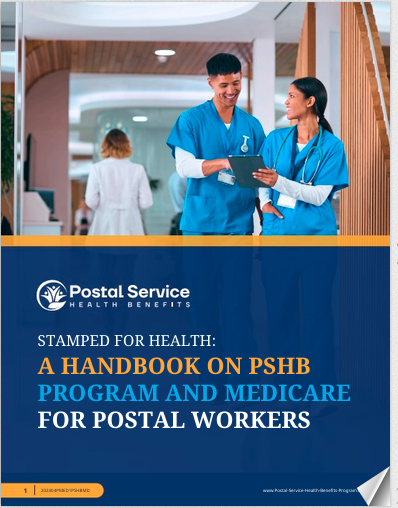Key Takeaways
-
Medicare Supplement plans, also known as Medigap, fill gaps in Original Medicare by covering costs like copayments, coinsurance, and deductibles, offering retirees more predictable healthcare expenses.
-
These plans provide flexibility by allowing you to visit any doctor or specialist that accepts Medicare, without the network restrictions often found in other plans.
Understanding Medicare Supplement Plans
If you’re a USPS retiree exploring options to enhance your healthcare coverage, Medicare Supplement plans might be just what you need. These plans, often called Medigap, are designed to complement Original Medicare (Parts A and B). While Medicare provides a strong foundation, it doesn’t cover everything. Out-of-pocket costs like deductibles, coinsurance, and copayments can add up quickly, especially for retirees on a fixed income.
Medicare Supplement plans step in to fill these gaps, offering you financial peace of mind and predictable healthcare expenses. This added layer of coverage ensures you can access the care you need without worrying about unexpected bills.
Who Can Benefit from Medicare Supplement Plans?
As a USPS retiree, you may already have health benefits through your retirement package, but Medicare Supplement plans can provide additional security. These plans are especially helpful if you:
-
Anticipate frequent doctor visits or specialist care.
-
Want the freedom to choose your healthcare providers without network restrictions.
-
Are concerned about managing high out-of-pocket costs.
Eligibility for these plans requires enrollment in both Medicare Part A and Part B. Typically, the best time to purchase a Medicare Supplement plan is during your six-month Medigap Open Enrollment Period. This period begins the first month you are 65 or older and enrolled in Part B. During this time, you have guaranteed issue rights, meaning insurers cannot deny you coverage or charge higher premiums due to pre-existing conditions.
How Medicare Supplement Plans Work
Medicare Supplement plans operate alongside Original Medicare, picking up costs that Medicare doesn’t cover. For example, if Medicare pays 80% of an approved medical expense, your Medigap plan may cover the remaining 20%. These plans are standardized, meaning the benefits for each plan type are the same regardless of the insurer offering them.
Standardized Plan Options
Medicare Supplement plans are categorized by letters (e.g., Plan A, Plan G, Plan N), each offering a different set of benefits. Some cover all or part of the following:
-
Part A coinsurance and hospital costs
-
Part B coinsurance or copayments
-
Blood (first three pints)
-
Part A hospice care coinsurance or copayments
-
Skilled nursing facility coinsurance
-
Part A and Part B deductibles
-
Foreign travel emergency coverage
It’s worth noting that Plans C and F, which offer the most comprehensive coverage, are only available to individuals eligible for Medicare before January 1, 2020. If you fall into this group, these plans remain an excellent option for maximum coverage.
Key Benefits of Medicare Supplement Plans
Freedom to Choose Any Doctor
One of the standout features of Medicare Supplement plans is the freedom to visit any doctor or specialist who accepts Medicare. Unlike other plans, there are no restrictive networks or referral requirements. This flexibility ensures you can receive care from providers you trust, whether you’re at home or traveling across the country.
Predictable Out-of-Pocket Costs
Retirement often means living on a fixed income, so unpredictable medical expenses can be a source of stress. Medicare Supplement plans help by covering many of the costs that Original Medicare leaves you to pay. With less financial uncertainty, you can focus on maintaining your health without breaking the bank.
Nationwide Coverage
For USPS retirees who plan to travel during retirement, the nationwide coverage offered by Medicare Supplement plans is a significant advantage. As long as a provider accepts Medicare, your plan will provide coverage, whether you’re visiting family in another state or exploring new destinations.
Cost Considerations
While Medicare Supplement plans offer robust benefits, it’s important to understand the costs involved. Premiums vary depending on factors such as your age, location, and the level of coverage you choose. Unlike Medicare Advantage plans, these premiums are paid in addition to your Part B premium.
Rate Stability
Many retirees appreciate that Medicare Supplement plans often feature stable rates, meaning your premiums won’t change dramatically from year to year. This stability helps you budget more effectively, especially if unexpected medical needs arise.
No Hidden Costs
Medicare Supplement plans are straightforward, with no surprise fees or hidden costs. You’ll know exactly what to expect when it comes to copayments and coinsurance, making it easier to manage your healthcare expenses.
Enrollment and Timelines
Timing is everything when it comes to enrolling in a Medicare Supplement plan. The ideal window for enrollment is during your Medigap Open Enrollment Period. This six-month period begins when you are 65 or older and enrolled in Medicare Part B. During this time, insurers cannot:
-
Deny you coverage.
-
Charge you higher premiums due to pre-existing conditions.
If you miss this window, you can still apply for a plan, but your application may be subject to medical underwriting. This means insurers can review your health history and may choose to deny coverage or charge higher premiums based on your health status.
Comparing Medicare Supplement Plans to Other Options
You may be wondering how Medicare Supplement plans compare to other coverage options like Medicare Advantage (Part C). While both options have their merits, there are key differences to consider:
-
Flexibility: Medicare Supplement plans allow you to see any Medicare-accepting provider, while Medicare Advantage plans often have network restrictions.
-
Costs: Medicare Advantage plans may have lower premiums but often come with higher out-of-pocket costs for services. Medicare Supplement plans offer more predictable expenses.
-
Coverage Areas: Medicare Supplement plans provide nationwide coverage, whereas Medicare Advantage plans may limit coverage to specific service areas.
Understanding these differences can help you make an informed decision based on your healthcare needs and lifestyle.
How to Choose the Right Plan for You
Selecting the right Medicare Supplement plan requires careful consideration of your healthcare needs, budget, and personal preferences. Here are some tips to guide your decision:
-
Assess Your Needs: Consider how often you visit doctors, your prescription medication needs, and whether you plan to travel.
-
Compare Plan Benefits: Review the benefits of each plan type to determine which aligns best with your requirements.
-
Understand Costs: Evaluate premium rates and factor in any additional out-of-pocket expenses.
-
Seek Guidance: Reach out to a licensed Medicare advisor or representative for assistance in understanding your options.
Why USPS Retirees Should Consider Medicare Supplement Plans
As a USPS retiree, you’ve worked hard to earn your benefits. Enhancing your healthcare coverage with a Medicare Supplement plan ensures you’re prepared for life’s uncertainties. These plans provide financial predictability, nationwide access to care, and the freedom to choose your providers—all of which are invaluable in retirement.
By taking the time to explore your options and enrolling during the right period, you can secure a plan that meets your needs and supports your well-being for years to come.
Your Next Steps for Comprehensive Coverage
Medicare Supplement plans remain a popular choice for retirees who value flexibility, predictability, and broad access to care. As you navigate your retirement healthcare options, consider how these plans can enhance your Medicare coverage and provide the peace of mind you deserve.






